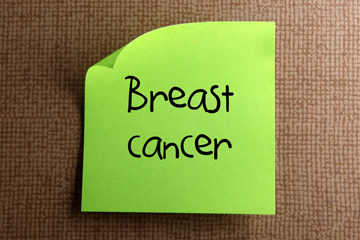
Breast cancer occurs due to abnormal growth of some breast cells. According to U.S Breast Cancer Statistics, in 2020, about 42, 170 women in the U.S are expected to die from breast cancer. There are so many misconceptions out there about breast cancer and it’s important to understand the facts.
Misconception 1: If you don’t have a family history of breast cancer, you don’t get it.
Fact: Many people think that breast cancer is an inherited disease. But only 5-10% of people who have a family history of breast cancer are diagnosed with it. The vast majority who get breast cancer have no family history, with environment and lifestyle being the prominent causative factors.
Misconception 2: You can do nothing to reduce your risk of getting breast cancer.
Fact: In a vast majority of women with breast cancer, the condition is caused due to the factors such as environment and lifestyle. You can reduce your risk by leading a healthy lifestyle – maintaining a healthy weight, following a nutritious diet, avoiding too much alcohol, not smoking, and starting mammograms at the age 40.
Misconception 3: A mammogram can cause breast cancer to spread.
Fact: A mammogram is the x-ray of the breast that helps in early detection of breast cancer. Mammograms require a small dose of radiation and the risk of harm from this radiation is extremely low. Screening can find cancer before any symptoms appear.
Misconception 4: Only women get breast cancer.
Fact: This is a big misconception. According to nationalbreastcancer.org, each year, approximately 2,190 men will be diagnosed with breast cancer and it is estimated that about 410 will die. Men should do self-examination of their breasts to check whether there any changes are happening, and if there are changes, report them to their physician immediately.
Misconception 5: Antiperspirants and deodorants can cause breast cancer.
Fact: There is no evidence that the use of antiperspirants and deodorants can cause breast cancer.
Misconception 6: If you find a lump in your breast, it is cancer.
Fact: Not all lumps are cancerous. Some may form due to cysts or scar tissue. However, if you feel any changes in your breasts it is better to consult a physician. Other symptoms of breast cancer include pain, swelling, redness or thickening of skin.
Misconception 7: Too much sugar consumption causes breast cancer.
Fact: There is no such evidence that sugar causes breast cancer. Eating too much sugar can lead to obesity that can increase the risk of various cancer.
Misconception 8: Breast implants increase breast cancer risk.
Fact: The risk of breast cancer is same for women with or without breast implants. However, standard mammograms don’t always work well for women with breast implants, and so they need additional X-rays to fully examine their breast tissue.
Misconception 9: Birth control pills can cause breast cancer.
Fact: Studies in 1990s showed that taking birth control pills may slightly increase risk of breast cancer. However, since then, the pills produced contain much lower doses of the hormones linked to those risks.
Misconception 10: Coffee can cause breast cancer.
Fact: There is no link between caffeine and breast cancer. In fact, research shows that caffeine may lower your risk of breast cancer.
Misconception 11: All breast cancer is treated the same way.
Fact: Depending on the characteristics of the cancer and patient preferences, treatment for breast cancer may vary. Some breast cancers are small, yet aggressive. Some grow slowly and become life-threatening. So, for each patient, the treatments and outcomes are different.
Maintaining a healthy diet, restricting intake of fat and sugars, staying physically active, and performing routine breast self-exams are some of the things you can do to decrease your breast cancer risk. Also, don’t forget to self-examine your breasts regularly. If you find any unusual changes, report it to your doctor as soon as possible.